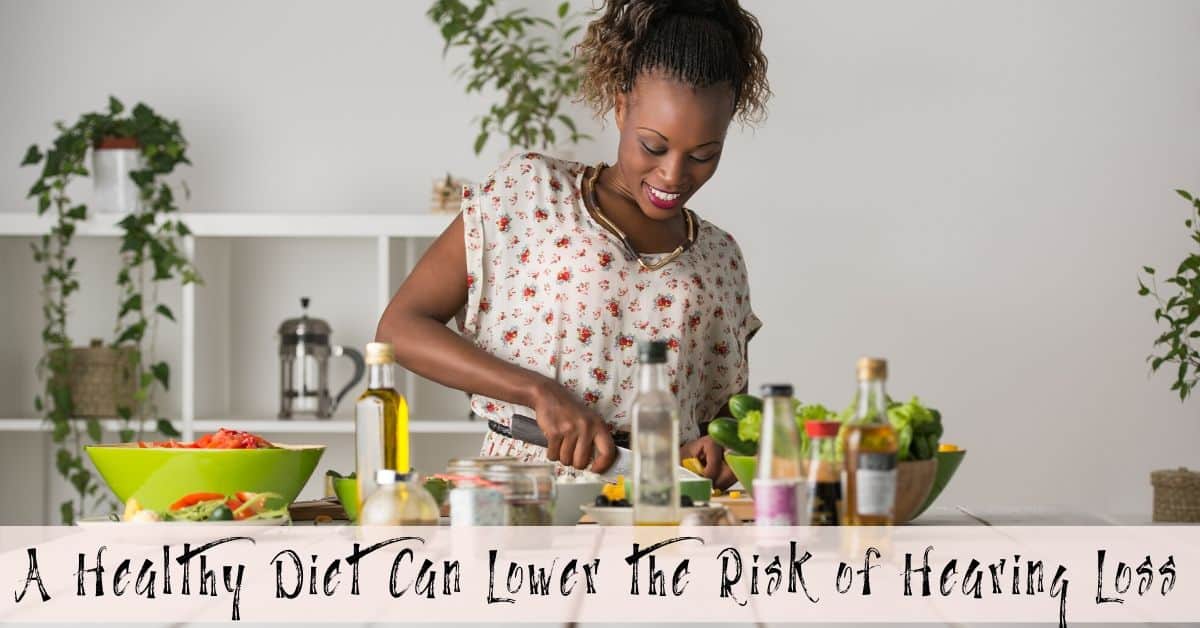
When it comes to protecting your hearing, the first thing that comes to mind is ear plugs or earmuffs designed to protect your ears from dangerously loud noise. Protecting your ears from noise induced hearing loss is an important part of hearing protection, but did you know that what you eat can have a big impact on your hearing health?
Protecting Your Hearing
Traditional hearing protection is extremely important when it comes to maintaining your hearing health. You can wear foam or wax earplugs if you’re in noise for an hour or two, and these earplugs are lightweight, inexpensive, and easily carried in your bag or pocket. If you work in a noisy job, or often find yourself at very loud leisure activities such as during a night out, a rock concert, or a sports event, protect your hearing with custom hearing protection that will provide a great seal, fit the unique contours of your ears, and keep your hearing safe from noise included hearing loss.
After you’ve been exposed to dangerous noise levels, give your ears a break by spending some time in silence, avoiding turning on music for a few hours, and let your ears and brain rest before exposing yourself to loud sounds. You’ll lower your risk of overexposure to loud noise, and your ears will stay healthy.
What You Should Be Eating for Your Hearing Health
Along with protecting your hearing, there are a few foods you should eat for the best in hearing health. If you want to eat the best foods for your hearing health, learn more about the vitamins and minerals your body needs to stay healthy. You need to eat foods that promote healthy blood flow, lower your blood pressure, and prevent damage in your body and your ears.
The best foods for your ears include:
- Leafy greens, lentils, and beans – these vegetables are high in folic acid. Having a diet high in folic acid will slow the progress of age-related hearing loss, and help your ears stay healthy as you age. Make sure you’re getting enough folic acid in your diet, and enjoy clear hearing.
- Fish, seafood, flaxseed, chia seeds, walnuts, and olive oil – high in omega-3s, these foods full of healthy fats will reduce inflammation in the ears, protect cardiovascular function, and slow the onset of age-related hearing loss to keep your ears healthy.
- Nuts and seeds – zinc is important for your ears and your brain. It can protect you from a sudden loss of hearing, and it will boost your immune system and will lower your risk of ear infections or illnesses that could affect your hearing health.
- Potatoes and fruits such as bananas, melons, and oranges, – potassium is an important nutrient for your hearing, and helps regulate fluid-levels in the inner ear. Maintaining the fluid in your ears will keep the delicate cells in the inner ear healthy and strong, and lower your risk of hearing loss.
Eggs, mushrooms, and fortified milk and cereals – vitamin D is extremely important for bone - health, and since your ears house your body’s three smallest bones, making sure you’re getting enough vitamin D in your diet will improve your hearing health. Vitamin D isn’t in very many foods, so find it in fortified milk and cereals, as well as in mushrooms.
- Avocados, whole grains, and dark chocolate – for your ear health, eat these foods high in magnesium. This nutrient will prevent hearing loss and protect your ears from noise induced hearing loss. Magnesium protects your ears from dangerous free radicals that are released during loud events. It will also improve blood flow, and your ears will get enough oxygen rich blood to stay healthy.
Pacific Northwest Audiology
Do you think you have a hearing loss? If you’ve been having a hard time hearing the sounds around you, can’t follow conversations in places with a lot of noise, or miss hearing your phone or stove alarm, look after your hearing health with a hearing test. Call the experts at Pacific Northwest Audiology to find out exactly what sounds you’re missing, and explore your treatment options. Think carefully about your lifestyle and hearing needs, and choose the devices that will help you hear in all situations.
